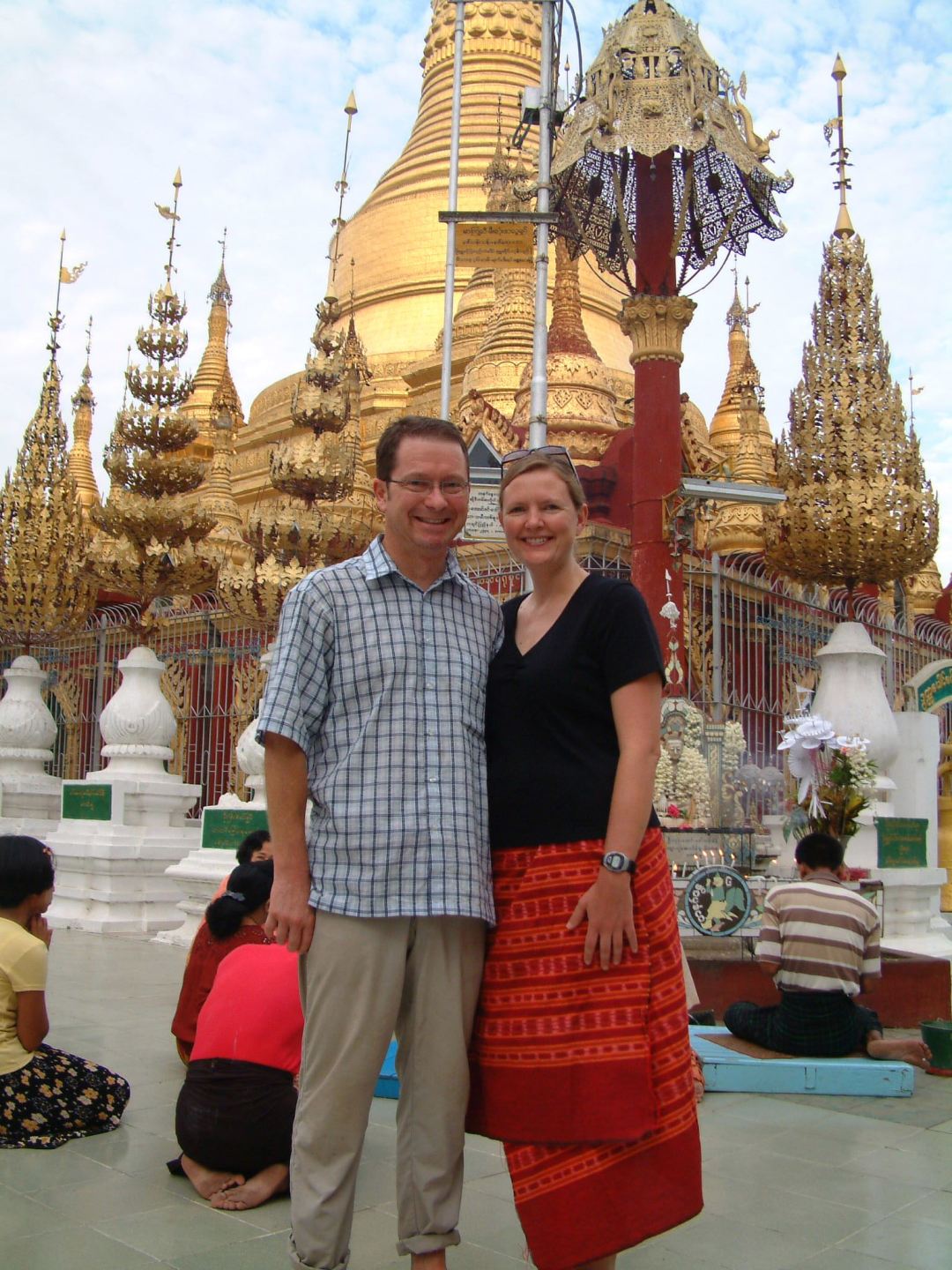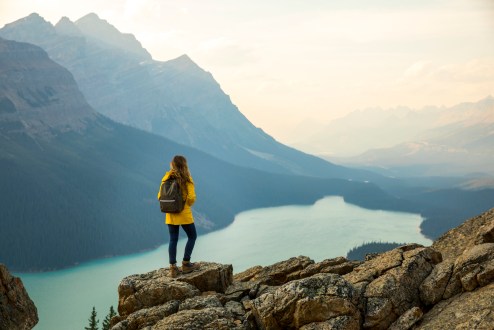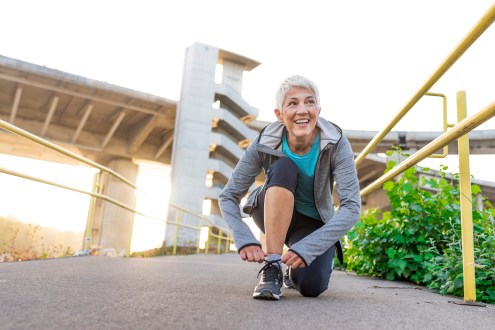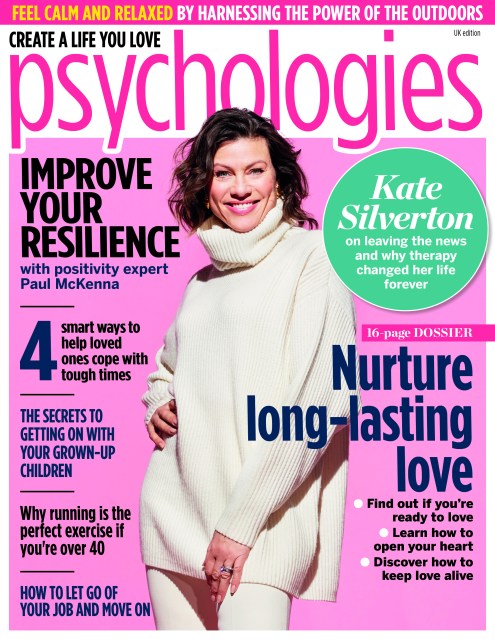Chemo and lockdown gave us the chance to complete our travel memoir
Writing about their mishaps and misadventures around the world became a sanity-saving distraction for keen travellers Lisa Jackson and her husband Graham as they faced the most challenging journey of them all: a devastating lung-cancer diagnosis

We’re not yet sure what it is
‘Are there any do’s and don’ts?’ I asked the harried-looking doctor sitting opposite us in the rundown London hospital consulting room. The scuffed walls were painted a bilious shade of green, as if they too felt queasy after hearing so much bad news.
‘We’re not yet sure what it is,’ she replied, ‘so I can’t tell you that.’
Sitting there, I grimly reflected on how much our life had changed in a week. Seemingly overnight, my husband Graham had gone from a man who’d been capable of running 27 marathons – reluctantly, as I’d enter him into races and weather the inevitable tantrums when he found out – to someone who struggled to reach the end of our road without gasping for breath.
‘So it’s okay for Graham to accompany me to Armenia to celebrate my 50th birthday?’ The doctor shot me an alarmed look.
‘With a lung like this,’ she said pointing at an X-ray, ‘he could die if he flew anywhere.’
The room spun. Graham’s medical issue was clearly a heck of a lot more serious than we’d anticipated, and it looked as if it had the potential to brutally wrest from us one of the things we most loved – travel.
Can I give you a hug?’
Two weeks later, just before midnight, I called Graham from my hotel room in Yerevan, Armenia’s capital. We’d decided that the procedure he needed to have to drain fluid from his lung wasn’t reason enough for me to cancel our trip. As the red illuminated numerals on the electronic bedside clock blinked away my final seconds as a 49-year-old, it didn’t feel as though I was celebrating turning 50 but instead holding a solo wake for my 40s. I found it hard to come to terms with the fact that the menopausal symptoms I’d been experiencing were my body’s way of telling me that, no matter how young at heart I felt, my youth really was over, but our worries about Graham’s health trumped any emotional issues I was trying to work through. It simply didn’t seem appropriate to ask Graham to help me grieve when he was facing something far more serious: a potentially devastating diagnosis.
Graham, invariably attuned to how I felt, tried valiantly to lighten my mood.‘You’re now at the age where it’s appropriate for you to buy travel sweets for the car and to forget where you parked it,’ he joked.
Once I was back in the UK, Graham and I attended another appointment in the same green-tinged room. ‘I’m really sorry to have to tell you that it’s cancer,’ said the doctor. A sick feeling surged through my body as I plucked up the courage to ask about the prognosis. It wasn’t good.
As we stood up to leave the nurse said, ‘I know loads of people who’ve lived longer than five years with this. Can I give you a hug?’ Tearfully, we both embraced her.
‘We aren’t going to fight the cancer, Graham,’ I told him as we left the hospital, ‘but heal it instead. We need to live in hope, not fear.’
In the weeks that followed I read every research paper I could find. I spent the day thinking about cancer, went to bed thinking about it and woke up in the night to think about it. It was when Graham forlornly asked, after opening the door to yet another delivery of cancer books, ‘How many more books are you going to read, Leecy?’ that I realised how his illness had taken over not only his life but mine, too.
That’s when I turned to travel to help me through. A few months previously, I’d watched a TV programme during which a seasoned travel presenter had cried on seeing the Northern Lights, and I became convinced that we should go in search of them, too. Researching the cruise options became a sanity-saving distraction: for an hour each day I’d allow myself to fantasise about the fresh Norwegian fish we’d eat and the cosy cabin we’d stay in. For those 60 minutes, I wasn’t wading through a swamp of conflicting medical information, I was just doing what I loved doing, piecing a trip together.
And then I had my eureka moment
In the end, the dates of Graham’s chemotherapy clashed with the trip, so we didn’t book it after all. But the headspace I gained from scheming and dreaming enabled me to continue with my research, despite its bleak predictions, which led to the breakthrough we sought. After 15 minutes in his office, we knew we’d found The One: a world-renowned surgeon who talked about being humble in the face of the disease and suggested dietary changes and meditation.
After Graham’s seven-hour operation, our next hurdle was the chemotherapy. The idea of spending eight hours on a chemo ward filled me with dread. How would we remain positive for such a long time? And then I had my eureka moment: we could start writing a travel memoir. During the 27 years we’d been married, Graham and I had travelled to dozens of amazing countries and dashed off on Fridays for cram-it-all-in city breaks. We had many a hilarious and hair-raising tale to tell. And so for six emotionally draining chemo sessions Graham put his feet up in a comfy recliner as I sat in a chair beside him and read aloud from the travel journals I’d retrieved from our loft.
During the time post-chemo – and the long months of lockdown – as Graham returned to better health, writing our book helped us to heal. We chuckled as we relived our misadventures and, when we agonised over the best way to describe the horror of eating putrefied shark in Iceland, screamed at each other in frustration, exactly as we’d done when backpacking around India 25 years earlier.
And so, after more versions than there have been covers of The Beatles’ song Yesterday, our book, Travel Seekness, finally got published. It was a long, tiring and difficult birth but, like all parents, we think our baby is beautiful.
Adapted from Travel Seekness: In Search of Places to Be, People to See… And Strange Stuff to Eat by Lisa Jackson and Graham Williams (Little Bandit Books, £9.99 paperback, £2.99 Kindle). 20% of profits will be donated to lung-cancer research









